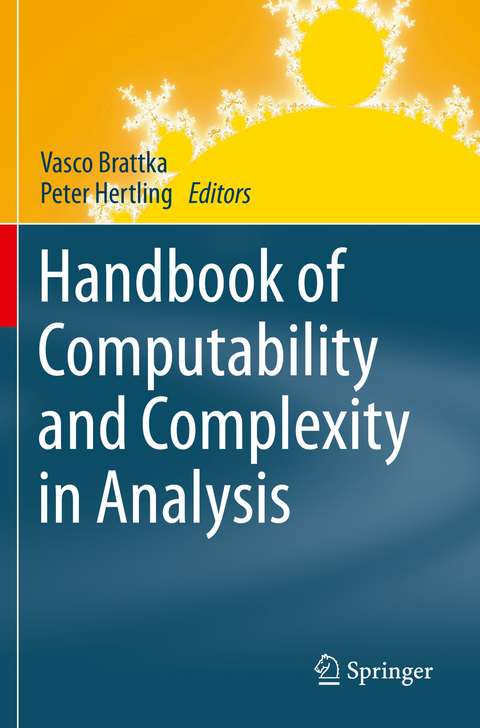
Handbook of Computability and Complexity in Analysis
Springer International Publishing (Verlag)
978-3-030-59236-3 (ISBN)
Computable analysis is the modern theory of computability and complexity in analysis that arose out of Turing's seminal work in the 1930s. This was motivated by questions such as: which real numbers and real number functions are computable, and which mathematical tasks in analysis can be solved by algorithmic means?
Nowadays this theory has many different facets that embrace topics from computability theory, algorithmic randomness, computational complexity, dynamical systems, fractals, and analog computers, up to logic, descriptive set theory, constructivism, and reverse mathematics. In recent decades computable analysis has invaded many branches of analysis, and researchers have studied computability and complexity questions arising from real and complex analysis, functional analysis, and the theory of differential equations, up to (geometric) measure theory and topology.
This handbook represents the first coherent cross-section through most active research topics on the more theoretical side of the field. It contains 11 chapters grouped into parts on computability in analysis; complexity, dynamics, and randomness; and constructivity, logic, and descriptive complexity. All chapters are written by leading experts working at the cutting edge of the respective topic. Researchers and graduate students in the areas of theoretical computer science and mathematical logic will find systematic introductions into many branches of computable analysis, and a wealth of information and references that will help them to navigate the modern research literature in this field.
Vasco Brattka is a professor for Theoretical Computer Science and Mathematical Logic at the Universitat der Bundeswehr Munchen and an Honorary Research Associate at the University of Cape Town. He is the Editor-in-Chief of Computability, the journal of the association, Computability in Europe, published by IOS Press. His research interests include computable analysis, computability theory, effective descriptive set theory, algorithmic randomness, complexity and logic, and Weihrauch complexity. Peter Hertling is a professor in the Institut fur Theoretische Informatik, Mathematik und Operations Research at the Universitat der Bundeswehr Munchen. He is an Associate Editor of the Journal of Complexity, published by Elsevier. His research interests include computable analysis, descriptive complexity and algorithmic randomness, complexity theory over the real numbers, and information-based complexity.
Part I, Computability in Analysis.- Computability of Real Numbers.- Computability of Subsets of Metric Spaces.- Computability of Differential Equations.- Computable Complex Analysis.- Part II, Complexity, Dynamics, and Randomness.- Computable Geometric Complex Analysis and Complex Dynamics.- A Survey on Analog Models of Computation.- Computable Measure Theory and Algorithmic Randomness.- Algorithmic Fractal Dimensions in Geometric Measure Theory.- Part III Constructivity, Logic, and Descriptive Complexity.- Admissibly Represented Spaces and Qcb-Spaces.- Bishop-Style Constructive Reverse Mathematics.- Weihrauch Complexity in Computable Analysis.- Index
| Erscheinungsdatum | 09.06.2022 |
|---|---|
| Reihe/Serie | Theory and Applications of Computability |
| Zusatzinfo | XXV, 427 p. |
| Verlagsort | Cham |
| Sprache | englisch |
| Maße | 155 x 235 mm |
| Gewicht | 771 g |
| Themenwelt | Mathematik / Informatik ► Informatik ► Theorie / Studium |
| Mathematik / Informatik ► Mathematik ► Allgemeines / Lexika | |
| Mathematik / Informatik ► Mathematik ► Logik / Mengenlehre | |
| Schlagworte | algorithmic randomness • Analysis • Computability • computable analysis • Computable numbers • Computational Complexity • Domain theory and analysis • Mathematical Logic • randomness • Real number algorithms |
| ISBN-10 | 3-030-59236-7 / 3030592367 |
| ISBN-13 | 978-3-030-59236-3 / 9783030592363 |
| Zustand | Neuware |
| Informationen gemäß Produktsicherheitsverordnung (GPSR) | |
| Haben Sie eine Frage zum Produkt? |
aus dem Bereich


